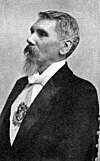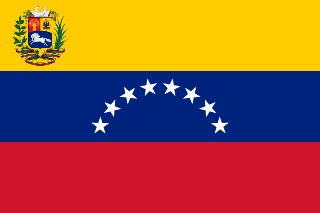
The President of Argentina, officially known as the President of the Argentine Republic, is both head of state and head of government of Argentina. Under the national Constitution, the President is also the chief executive of the federal government and Commander-in-Chief of the armed forces.

Manuel Pedro Quintana y Sáenz de Gaona was the President of Argentina from 12 October 1904 to 12 March 1906. He died in office.
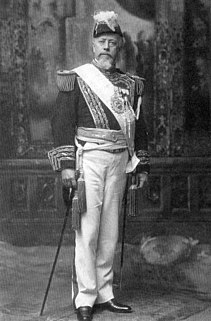
Alejo Julio Argentino Roca Paz was an army general who served as 8th President of Argentina from 12 October 1880 to 12 October 1886 and 13th from 12 October 1898 to 12 October 1904. Roca is the most important representatives of the Generation of '80 and is known for directing the "Conquest of the Desert", a series of military campaigns against the indigenous peoples of Patagonia. During his two terms as president, many important changes occurred, particularly major infrastructure projects of railroads and port facilities; increased foreign investment, particularly from Great Britain; large-scale immigration from southern Europe; expansion of the agricultural and pastoral sectors of the economy; and laicizing legislation strengthening state power. Roca's main foreign policy concern was to set the limits with Chile, which had never been determined with precision. Roca took advantage of the fact that year of 1881, Chile was fighting the War of the Pacific against Bolivia and Peru, so for Chile it was strategically important not to have a second military front. Argentina gained territory by treaty with Chile.
The National Autonomist Party was a conservative Argentine political party which ruled Argentina during the 1874-1916 period.
The Argentine Revolution of 1905 also known as the Radical Revolution of 1905 was a civil-military uprising organized by the Radical Civic Union and headed by Hipólito Yrigoyen against the oligarchic dominance known as the Roquismo led by Julio Argentino Roca and his National Autonomist Party.

The Argentine general election of 1928 was held on 1 April, with a turnout of 80.9%.

The Argentine general election of 1916 was held on 2 April. Voters elected the President, legislators, and local officials. The first secret-ballot presidential elections in the nation's history, they were mandatory and had a turnout of 62.7%.
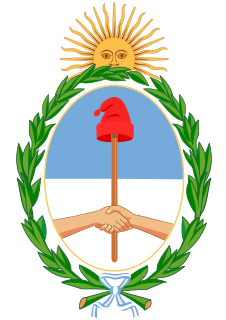
Argentina held nine presidential elections between 1862 and 1910, every six years.

The Argentine Civil Wars were a series of civil wars that took place in Argentina from 1814 to 1880. These conflicts were separate from the Argentine War of Independence (1810–1820), though they first arose during this period.
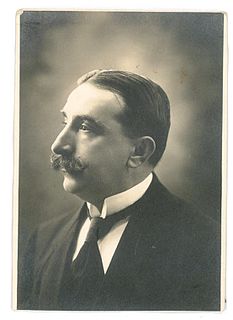
Julián Bourdeu was one of the numerous béarnais that migrated to Rio de la Plata and, once established in Argentina, became a distinguished resident of the city of Buenos Aires where he created or supported several cultural endeavours. He was also a journalist and a Police Commissary.

The Argentine presidential election of 1854 was held on 20 February to choose the first president of the Argentine Confederation for the period 1854-1860. Justo José de Urquiza was elected president by a wide margin.
The Argentine presidential election of 1860 was held on 6 February to choose the second president of the Argentine Confederation. Santiago Derqui was elected president.

The Argentine presidential election of 1862 was held on 4 September to choose the first president of Argentina. Bartolomé Mitre was elected president.
The Argentine presidential election of 1868 was held on 12 April to choose the president of Argentina. Domingo Sarmiento was elected.
The Argentine presidential election of 1874 was held on 12 April to choose the president of Argentina. Nicolás Avellaneda was elected president.
The Argentine presidential election of 1880 was held on 12 April to choose the president of Argentina. Julio Argentino Roca was elected president.
The Argentine presidential election of 1886 was held on 11 April to choose the president of Argentina. Miguel Juárez Celman was elected president.
The Argentine presidential election of 1892 was held on 10 April to choose the president of Argentina. Luis Sáenz Peña was elected president.
The Argentine presidential election of 1910 was held on 13 March to choose the president of Argentina. Roque Sáenz Peña was elected president.
The Argentine presidential election of 1898 was held on 10 April to choose the president of Argentina. Julio Argentino Roca was elected president for a second period.


